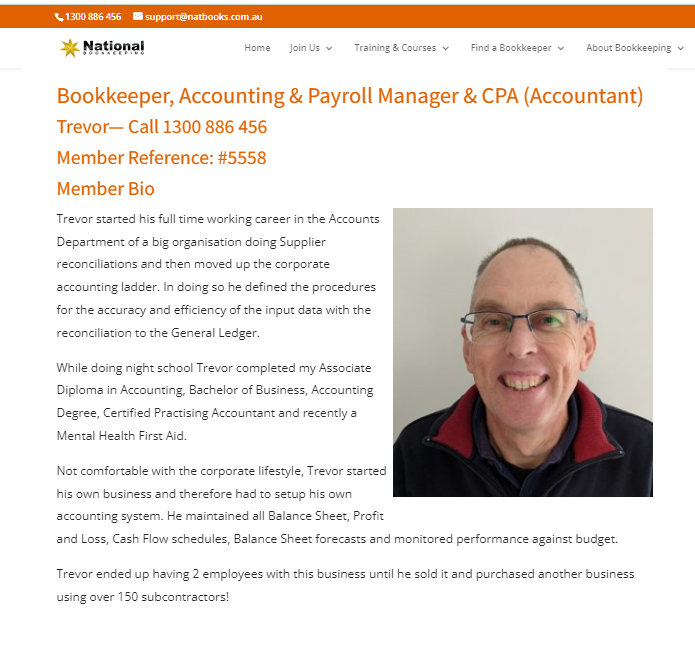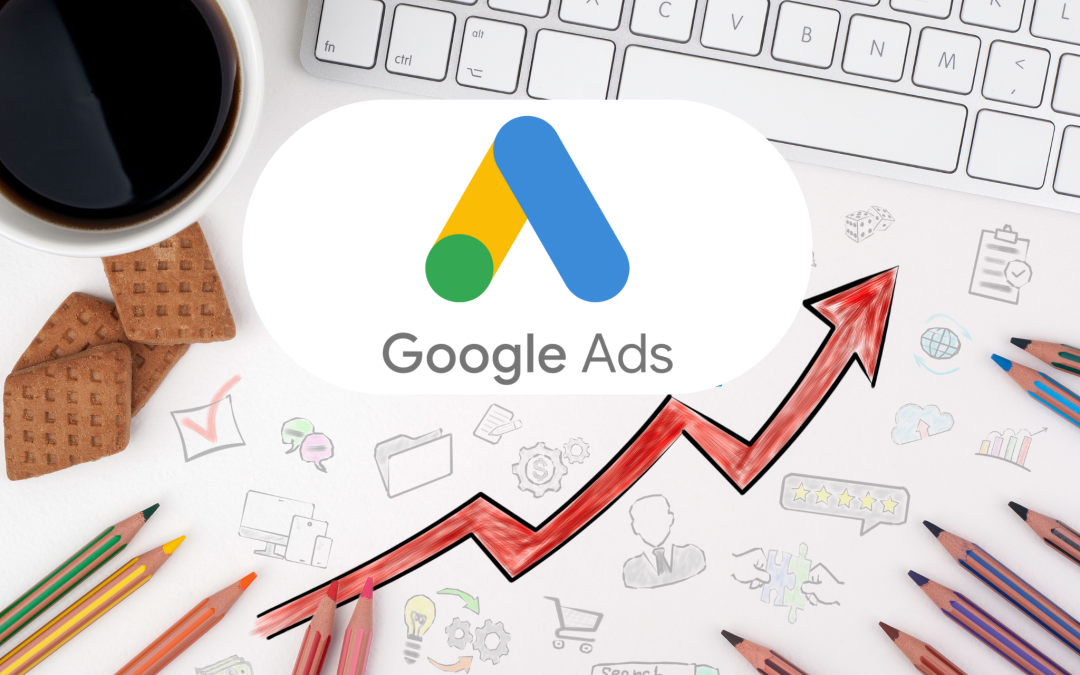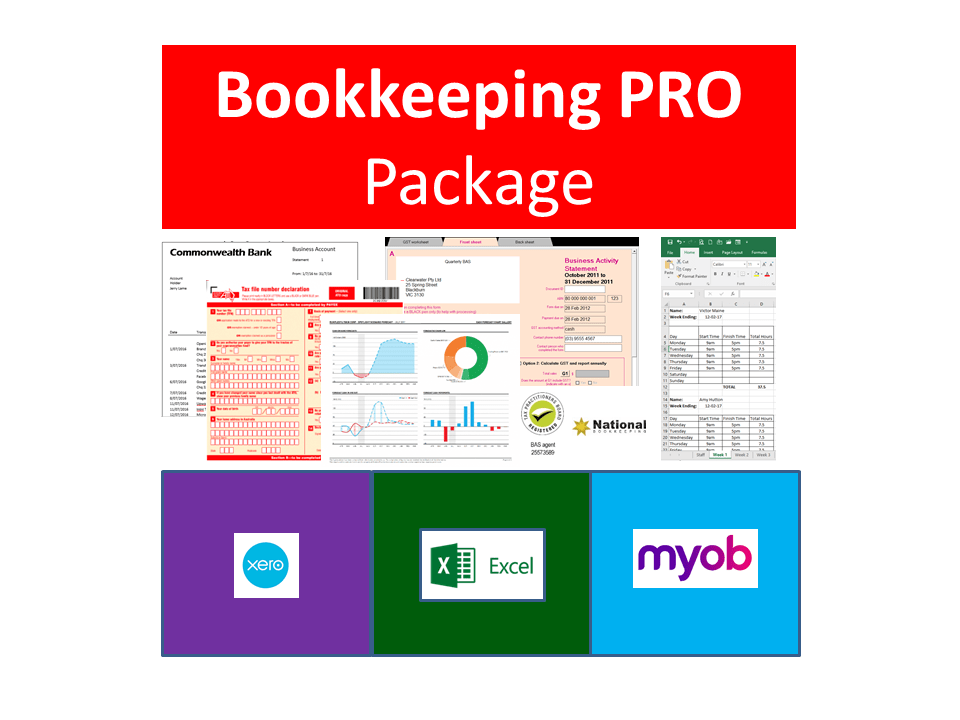Learn how to use paid ads effectively to attract new clients and grow your online business.

Businesses offering professional services such as bookkeeping, customer service or virtual assistant services typically find themselves competing against other businesses who are advertising the same services, at the same price, in the same place.
That doesn’t mean that you have to break your marketing budget just to get noticed, but it does mean that you have to make your advertising dollars work smarter, in a way that speaks to your ideal clients.
Google Ads (previously called Google Adwords) is the gold standard Keyword advertising tool designed to help customers find you based on selected search Keywords and phrases. When a prospective client searches online for a particular service, Google will return a combination of paid ads and organic search results, with paid ads featured prominently at the top of the page. That’s where YOU want to be!
If you’re not sure where to start, you’re not alone. Most professional service providers graduate from their courses with skills in their chosen field, not in marketing. For those wanting to start their own business and hit the ground running, it pays to have a marketing plan that includes a well-planned online advertising campaign.
In the Landing Pages, Google Ads, Lead Capture & Analytics Training Course students are introduced to most of the Google Ads concepts using Google Ads Express. It’s designed for beginners but doesn’t have anywhere near the flexibility and choices that comes with Google Ads in Expert Mode.
Now, you’ll learn how to take a deep dive into Google Ads Campaigns, Ad Sets and Google Ads in several practical case studies including:
- a CPA who wants to promote his bookkeeping services
- How the Career Academy attracts prospects using Google Ads
- An electrician who also provides air conditioning and refrigeration services
In this course you will learn about:
Ads Budget
Google Ads works on an auction basis where businesses bid for the top or preferred position for selected Keywords and phrases and in preferred locations. Most of these ads are charged at a “Cost per Click” or Price Per Click and businesses get to choose their daily ad budget.
Does this mean I need a lot of money to advertise?
No. We’ll teach you how to do Keywords research so you get more value for your advertising dollar. By using Keywords that specifically match what your prospect is looking for, you’ll attract the right type of clients without blowing your budget.
You’ll explore campaigns based around niche keywords that make it cheaper to target specific services while also bringing traffic to your website.
Case Study: The Career Academy website that retails bookkeeping and office admin courses
In this module you’ll learn about the sales stages and sale value based on a real-life business scenario. This exercise will teach you how much you can afford to pay for a click and how much a sale is worth.

Keyword Research
Investing a little time upfront to research your Google Ads Keywords could potentially save you thousands of dollars in misdirected advertising.
Keywords and Key Phrases are the cornerstone of the English language. As early as primary school we learn about using words to search for information as well as write about it. Sometimes you’ll do a Google search for something only to realise that you need to use better keywords to get better results.
Market Research of your competitors
Understanding the keywords that buyers use to find your business will make a big difference to what you put into your Google Ads as well as the words on your landing pages.
Google Ads Keyword Planner is one tool that you’ll learn how to use but you’ll also do some competitor market research to see which keywords and offers they put into their ads and landing pages.
Whether you want to learn from your competitors or not the people who contact you will probably have already seen and explored your competitors and what they offer.
Keyword Topics Covered in Google Ads Training Course (Level 2):
- What are Keywords and how do they influence Google search results?
- Commonly used Keywords
- Branded Keywords
- Negative Keywords
- Keyword ideas. Google can recommend keywords that will send traffic to your website.
- Competitor Keywords. Find out which keywords are working successfully for other businesses in your field.
- Paid and organic headings
- Paid and organic descriptions
- Call outs, links and features. These are aspects of a Google Ad which appear beneath the ad and give visitors an option to choose a specific link if they are interested in it.
- New Keywords. Find out which words attract the type of clients that you are looking for.
- Branded or Non-branded Keywords. This information gives you insight into what is happening in the market and with your competitors.
- Statistics and Keyword Matching. Narrow or widen your target audience using exact matching, phrase matching and broad matching techniques.
- The Google Ads Keyword Planner is a free tool that helps you to research Keywords related to your business. You’ll learn how to find estimates of searches and the cost to target them.
Landing Pages
Your landing page is the first thing your prospective client will see when they click on your ad. Google penalises ads with bad landing pages that are not relevant and your Google Ads can cost you thousands of dollars per month more than they should.
The Website Landing Pages & Call-To-Action Training Course teach you about what to put on a landing page and why and the Google Ads Training Course (Level 2) will go deeper into the financial value of using these different kind of landing pages or whether to use them at all and focus on purpose built landing pages.
You’ll learn about the different types of landing pages that are most likely to compel visitors to enter their details on a lead capture form:
- A normal page such as a website Home page.
- A course category page to showcase your available products and services.
- A blog post to provide valuable tips and expert advice, and encourage visitors to subscribe.
- A dedicated landing page that is designed for a specific purpose, such as entering a competition or downloading a free training manual.
- A competitor comparison niche landing page to divert traffic away from competitor websites.

Campaigns and Adsets
Campaigns help you to organise categories of products or services that you offer. Having separate campaigns for each type of work means that you can test the effectiveness of different types of ads on audiences with different needs.
In this module you’ll learn how to:
- Create ad groups that share similar target audiences
- Submit bids for popular Keywords
- Define your target audience
- Choose your ad placements in commonly used Google apps
Google Ads
Learn which ad layouts, Keywords and Call-To-Action (CTA) phrases work best to target your potential clients.
Case Study: Bookkeeping Service in Melbourne South East
In this module you’ll study the case of a real-life Bookkeeping, Accounting and Payroll Manager who used Google Ads to attract clients to his newly launched Xero Payroll Training and Tutoring services.
Topics covered:
- How to write an ad – headings and descriptions
- Adding images to your Google Ads
- Creating a strong Call-To-Action (CTA)
- Building a landing page
- Understand the difference between Impressions, Clicks and Leads

Summary
A ‘scattergun’ approach could end up costing you a lot of money—with no sales leads to show for it.
It is critical that you take the time to research and plan your Google Ads before you start bidding for Keywords. By learning the steps you should take to create and test different types of ads, you will find the optimum combination of Keywords, images and Call-To-Action that resonate with your ideal clients.
Google Ads—Creating Your Google Ad to Reach More Clients for Your Xero Bookkeeping Business

Advertising on Google can seem complicated at first but when you understand how the process is structured, it becomes much easier. In this article we’ll explain the difference between Campaigns, Ad Groups and Ads, and how you can use them to test your ads and get the best results.
Google Ads—Understanding Impressions, Clicks and Leads

The key to improving your Google Ads performance is to understand the difference between Impressions, Clicks, and Leads. Knowing how they work will help you to improve the quality of your ads and your landing page, helping you to attain a higher Ad Rank and attract more of your ideal clients.
https://workface.com.au/2022/10/google-ads-understanding-impressions-clicks-and-leads/





